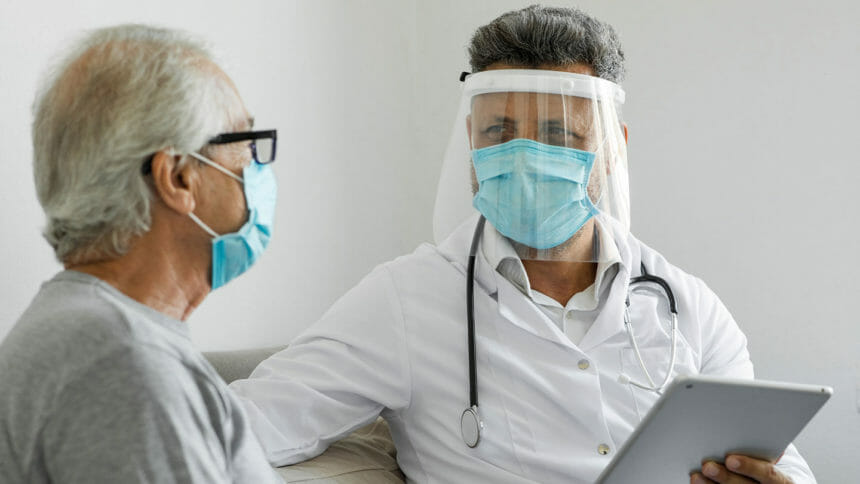
Despite cumulative exposure, healthcare workers in 2020 and 2021 were 40% less likely to contract COVID-19 when they wore respirators rather than surgical masks, a study across seven healthcare networks in Switzerland has found.
Participants included more than 2,900 workers, 26% of whom were infected with SARS-CoV-2. COVID-19 test positivity was 13% in workers without patient exposure. Not surprisingly, it was greater in those who did have patient contact, but mask use appeared to affect risk. In workers exposed to patients, 35% were infected if they typically wore surgical masks, compared with 21% of those who used respirator masks.
The results held after adjusting for factors tied to SARS-CoV-2 infection at work and outside of work, such as positive household contacts and vaccination status, investigators reported. The results also support those of previous studies, which found greater relative protection from respirators, they noted.
The “use of respirators and SARS-CoV-2 vaccination might substantially decrease the work-related risk for healthcare workers exposed to patients with COVID-19,” the investigators concluded.
Still, the SARS-CoV-2 virus has changed since 2020 and 2021, when the study data was collected, researchers acknowledged.
“Whether these results are applicable to newer viral variants, which are more contagious and less neutralized by most vaccines, remains to be seen,” they noted.
The study was published in JAMA Network Open.
Related articles:
CDC’s refreshed COVID guidance zeros in on the vulnerable
Study: A brace tops medical mask modifications to block respiratory pathogens
CMS: Face masks an ‘acceptable’ alternative to respirators during supply shortage




